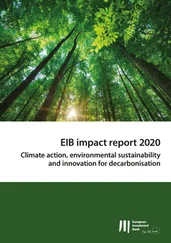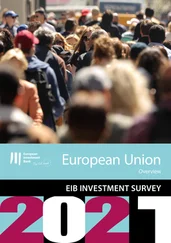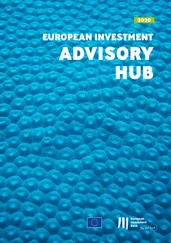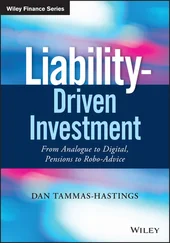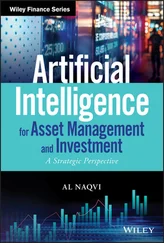A coordinated EU response could catalyse the transformation.Investment in one region or EU member has significant spillover effects for neighbouring regions and countries. With resources available from the municipal to the European level, coordination is essential to maximise the synergies of such investment. The coordinating role of European policy can help to reduce policy uncertainty and instil a vision of a digital, net-zero carbon future. EU support is needed to create the conditions for more equity-based finance for businesses and to provide clarity on carbon prices, green financial products and the climate-related risks that banks are exposed to. EU support, such as the Just Transition Fund, is also needed to address the wide divergence in regional progress on the digital and climate transitions, and the regional inequalities that these transitions could exacerbate.

Debora Revoltella
Director, Economics Department
European Investment Bank
The coronavirus pandemic swept across Europe with a ferocity and speed that caught EU governments by surprise.Facing a vertiginous rise in infections and deaths, governments took drastic action to halt the virus’s spread by severely limiting people’s movement. Those restrictions essentially froze the European economy, and it fell to policymakers to keep its heart beating. Initial attempts to curtail the spread of the coronavirus in early March fell short, and governments found themselves facing a health crisis unlike anything they had ever seen before. As the number of cases and COVID-19-related deaths surged across the European Union, governments took sweeping measures to flatten the curve of new infections and to ease mounting pressure on national health systems. These measures, however, have strangled economic activity. The consequences for employers and employees would have been catastrophic – worse than any modern-day crisis – if policymakers had not stepped in with sweeping measures to limit the economic shock.
The economic policy response was swift and unprecedented.Monetary authorities, national governments and European institutions took concerted action to contain the economic damage and to deliver a quick and comprehensive response. Cash-strapped businesses were injected with funds and central banks ensured that credit flowed freely. Financial regulators pushed for widespread moratoriums on debt repayments and supported massive loan-guarantee programmes. Millions of jobs were saved thanks to programmes to subsidise employment through short-time work schemes. The European Central Bank (ECB) and national monetary authorities also backed up the financial system by providing sufficient liquidity and smoothing the path for public and private debt issuance.
The short-term response to the pandemic proved essential to limiting the fallout, but those short-term measures must be aligned with policies that help the European Union meet its long-term challenges.The partial economic rebound over the summer attested to the success of the policy response in the first half of 2020. While the broad response proved instrumental in stemming the decline in economic activity, it also sucked up substantial public resources. EU government debt increased by 8.4 percentage points to 88% of gross domestic product (GDP) from the first to the second quarter of 2020. The European Commission expects debt to GDP to reach 94% by the end of 2020. A second wave of contagion and lockdowns in the autumn further exacerbated the crisis. The resulting uncertainty raises questions about the sustainability of governments’ blanket support for the private sector. Massive government stimulus, along with weakening private-sector fundamentals and incentives, could potentially derail the European Union’s drive to address its two main challenges – climate change and digitalisation. Aligning short-term support during the crisis with long-term objectives is crucial.
The Investment Report 2020-2021: Building a smart and green Europe in the COVID-19 era focuses on the two major structural challenges for Europe – digitalisation and climate change.It is organised into two parts. The first part outlines trends and developments in investment in the European Union, while the second focuses on the structural challenges of climate change and digitalisation. The experience of the pandemic has stressed just how difficult, but important, it is to address these two issues. The International Energy Agency estimates that greenhouse gas emissions in 2020 will be 8% lower than in 2019 – the largest recorded annual decline. While the decrease is encouraging, it is nowhere near the European Union’s target of a 55% net reduction of carbon emissions by 2030. If anything, the crisis has illustrated the fundamental economic overhaul needed to meet the challenge of climate change. The COVID-19 experience has also confirmed that, going forward, rapid digitalisation is indispensable. The digital capabilities of individuals, firms and governments were key to Europe’s resilience during the pandemic. In the future, growth, innovation and even climate change will increasingly depend on digital interaction. At the same time, digitalisation and climate change adaptation and mitigation will require major structural changes and will challenge social cohesion. Addressing these challenges in a timely manner could maximise the potential benefits of the transition.
The analysis provided in the report stems from three in-house surveys.The EIB Investment Survey (EIBIS), whose fifth annual survey was conducted in the summer of 2020, adds valuable information about the impact of the coronavirus pandemic. The survey’s climate module was extended, and it provides unique information on the impact of climate change on firms’ decisions. Following the EIB Municipality Survey in 2017, a second survey in 2020 focused on the infrastructure investment decisions of EU cities and municipalities, and asked how climate change was influencing their decisions. The third survey, run online in cooperation with Ipsos, collects companies’ assessments of their efforts to introduce environmental innovations, the motivations for doing so and the obstacles encountered.[1]
The report begins with a detailed analysis of the impact of the pandemic on the economy, overall investment and corporate investment and finance. Chapter 1sets the scene with an overview of the economic environment, the impact of the pandemic on real economic activity and the financial sector and the economic policy response. It outlines the extraordinary decline in economic activity resulting from government measures to curb the spread of the pandemic and the corresponding swift policy response. It stresses the importance of EU-wide policy initiatives that have the potential to change economic policymaking in the European Union.
Investment in the European Union fell precipitously in the second quarter of 2020. Chapters 2and 3home in on corporate investment and investment financing, presenting the main results of the EIBIS 2020. The chapters outline the extraordinary decline in investment triggered by elevated uncertainty and the imposed restrictions on economic activity, even though credit flowed freely and governments and the European Union provided substantial policy support. Despite these supportive measures, investment activity could remain subdued beyond the pandemic because of an erosion in firms’ ability to self-finance their activities. To counteract a longer slowdown, policy support should evolve in stages. Governments, which started by providing liquidity at the onset of the pandemic and then maintained the flow of credit, now need to focus on enhancing the types of financing available for firms by providing more equity products.
Читать дальше





